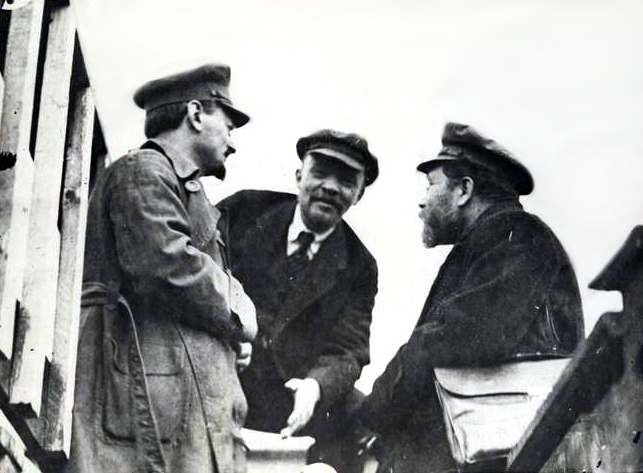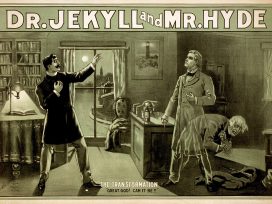
Eurocommunism
Soundings 86 (2024)
On the space to the left of European social democracy: Eurocommunism’s continuing legacy; reflections on the rise and fall of Eurocommunism in the UK; and everyday communism in the Austrian city of Graz.
Political theorist Michael Walzer, in conversation with Thomas Casadei of Eurozine partner journal ‘Il Mulino’, considers the noble aims and ignoble results of revolution – and in particular the 1917 Russian Revolution.
Thomas Casadei: The history of revolutions brings us into direct contact with the question of hierarchy. There is a trend in all human societies to produce and reproduce a hierarchy. Revolutions basically remove a system of hierarchical relations. This certainly applies also to the October revolution, but in which forms?
Michael Walzer: Robert Michels’ ‘iron law of oligarchy’ might better be called the ‘iron law of hierarchy.’ All societies, except for the most primitive ones, take on a hierarchical form – socially, economically, and politically. The inequalities can be extreme or moderate; there can be more or less social mobility, the politics can be brutal or (relatively) benevolent. Revolutions destroy one set of hierarchical relations and then produce another – a new set of ranks and orders, which may include lords and masters at one end and radically subordinate men and women at the other, or which may be more gradually mediated with less sharp differences. Revolutionary dictatorships always produce a radical inequality of the powerful and the powerless. That’s what the October Revolution produced in Russia. For a time, the revolution may have made for greater economic equality, but the dictatorship of the Communist Party guaranteed that over the long term the political hierarchy of party leaders, party members, and everybody else would give rise to familiar forms of social and economic inequality too.
One key figure of the Russian Revolution is Lenin. Is the figure of a ‘líder maximo’, or maximum leader, unavoidable for the revolutionary process or is it possible to think of the revolution as an essentially collective process?
I don’t believe that all revolutionary struggles have some predetermined end – even hierarchies can take very different forms. But any commitment to revolutionary dictatorship, to the rule of the virtuous or the vanguard – the possessors of ‘true consciousness – is likely to produce, sooner or later, a single dictator, a maximal leader, a figure like Robespierre or Stalin or Mao. By contrast, American revolutionaries were committed to republican (not yet democratic) politics, and they never recognized a maximal leader. They were a group of men – it was still only men – committed to a common project, who competed for power, quarrelled, formed factions and then parties, and learned to respect each other’s turn in leading the government. The American Revolution produced, indeed, a bourgeois republic, with its own hierarchies, but it avoided any form of dictatorship.
In Exodus and Revolution you mention the work Moses in Red by Lincoln Steffens, a defence of Leninist politics through the detailed account of Israel’s political fights in the desert. Is there a religious dimension to the Russian revolution? In which terms?
I suppose you could say that Moses was a maximal leader (according to the biblical story, he had God on his side), and he was sometimes referred to by preachers or writers defending other maximal leaders. But the crucial political issue in the Exodus story is the ‘murmurings’ against Moses, the repeated challenges to his authority. These rebellions or near-rebellions are always put down either (in the incident of the golden calf) by allies of Moses, or by God directly. Steffens likens these repressions to the Bolshevik purges of Social Revolutionaries and Mensheviks, and argues that this is what revolutions require. I don’t think that Lenin himself ever imagined that he needed a biblical defence – or any sort of religious authorization. He treated Marx’s books as something like holy scripture, but he was himself a revisionist, so he can’t have believed wholeheartedly in their holiness. Other people probably did.

Leon Trotsky, Vladimir Lenin and Lev Kámenev (Moscow, 1920). Source: Flickr
Beside the figure of Lenin, the Russian Revolution is the revolution of a vanguard, the Bolsheviks. Who are they, what do they represent and what teaching offers us their experience in your opinion?
Vanguard theory is one of the most important doctrines of the radical or revolutionary left. I believe that it is a dangerous doctrine. Of course, every revolution has leaders, but a vanguard is a leadership of a very special kind. Its members claim to know the truth about history and society; they have overcome the ‘false consciousness’ of the masses, and they assert a right, an absolute right, to lead and later on to rule on the basis of their ‘true consciousness.’ In power, they are radically intolerant of anyone who doesn’t know the truth. And, almost by definition, the rest of us don’t know the truth; we have been brainwashed by a religious education or by the capitalist media or simply by living so long in subordinate positions that we have come to think of them as normal and legitimate. We need the knowers, and they insist that we subordinate ourselves (again) to their rule.
The Bolsheviks got the better of the Mensheviks. They had different conceptions of a political party: for the former it had to be an élite of professional revolutionaries, while for the latter it had to be a mass, collective movement. What kind of knowledge can be deduced from the Mensheviks’ experience for the history of political thought? They are often compared with the Girondins: what are their affinities?
The Girondins and the Mensheviks have this in common: in the revolutionary struggle, they came in second; they were defeated. They are remembered more for being losers than for the principles they defended and the reasons for their defeat. They lost first of all because they were less willing than their opponents to kill their opponents. They wanted to rule with mass support even if it took time (and democratic patience) to win that support. They didn’t believe with absolute certainly in a single ‘truth’; they were prepared to compromise in order to move forward peacefully, without violence. You could say (it’s been said) that they weren’t determined enough or ruthless enough to rule in the turmoil of the breakdown of the old order. Perhaps, but had they been able to hold power, they would have been better rulers than the Jacobins or the Bolsheviks. They would have killed far fewer people.
Another leading protagonist of the Russian Revolution was undoubtedly Leon Trotsky, the theoretician of permanent revolution (although mention of permanent revolution can be found in Marx and Engels’s writings). This opinion was contrasted – and was considered a ‘deviation’, as was his whole thought – with the organisations of the left bound to the USSR or to China. You were raised in an environment which was close to Trotskyism: what kind of interpretation do you give to this figure in the history of the revolution and, more generally, within the political thought of the left?
Trotsky was more than willing to rule by force and to kill the opponents of Bolshevism; he was a fully committed Bolshevik, and I cannot honour his role in, for example, the suppression of the Kronstadt rebellion. His argument that socialism could not survive in one country alone, that it needed revolutionary allies abroad, was probably right, but he radically overestimated the likelihood of revolutions abroad. He grew in stature because of his defeat in the Soviet Union and because of the character of the man who defeated him. Trotsky became the leading intellectual and political opponent, the significant other, to Stalin, and because Stalin was grotesque, Trotsky became humane. The Trotskyists, or rather, some of them, formed a democratic left opposition to Stalinism. My political teachers came from that milieu. They had grown up in and then left the sectarian world of Trotskyism, and were on the road to democratic socialism or social democracy. But they still held Trotsky’s anti-Stalinist writings in high esteem; his critique set them on their way.
Another key figure, always fascinating also for her biographical story is Rosa Luxemburg. In an article in 1918, entitled The Russian Revolution, she is the first to criticize ‘from the left’ some choices taken by the Bolshevik authorities after the October Revolution, identifying the danger of an early bureaucratisation of the revolutionary process and a regression to totalitarian type. What ideas do you take from her intellectual and political journey? Was her revolutionary alternative reconcilable with the empowerment of a political dimension of liberty?
She is indeed an attractive and heroic figure, a martyr to the idea of revolution. Her early critique of Bolshevism was exactly right. But in 1919 she joined an uprising that had no mass support. Had she and her comrades won, they could not have ruled democratically. Some of them would have chosen dictatorship. Would she have broken away at that point and repeated her criticism of the Russian Revolution? I like to think so, but we will never know.
It seems to me that an important aspect – an often neglected one – of the outcomes of the Russian Revolution has to do with some important conquests in the area of women’s emancipation. In the October Revolution, Aleksandra Kollontai was the first woman in history to hold the office of minister, and, later on, of ambassador. In the short period of her assignment as ‘people’s commissar’ she ordered the distribution to the peasants of lands owned by monasteries, the setting up of state day nurseries, and support for mothers. Also thanks to her initiative, Russian women obtained the right to vote and to be elected, the right to education, and the right to an equal salary in comparison with men. Divorce was also introduced and, in 1920, the right to abortion (later abolished, in 1936, by Stalin). These were not small things, and happened in the Soviet Union before they did in many democratic countries… This seems to me a little-recognised aspect, or am I wrong?
Yes, the Russian revolutionaries were feminists in theory, at least, and a few of them. like Kollontai, in practice. The right to vote came in the Soviet Union at roughly the same time as in the West (1918 in the US), but there was a larger presence of women in the professions, especially the medical profession, in the Soviet Union than anywhere else. But the leadership of the Communist Party, and therefore of the Soviet Union, was overwhelmingly male throughout the Stalinist years and afterwards, too. There was an affinity between bohemian culture and revolutionary politics in early 20th-century Russia, and this affinity is a key reason for the stronger position of women in the first decade of the revolution. But the affinity disappears, bohemian culture is repressed, and the standing of women in the party and in public life generally is, while not eliminated, reduced.
The idea of revolution is also associated with the idea of regulation: according to a political, economic, ideological plan. This is certainly so for the Russian Revolution, which maybe even represents the climax of this method. Regulation forms an important level of state power. The classical problem is that between ‘plan’ and ‘market’. Some maintain that Lenin teaches us the ‘centrality of politics’ and invites us, still today, to fight for it against the presumed centrality of administration – this is nothing but politics in favour of dominant classes and technocracies falsely presented as neutral. What do you think?
Two issues here: first, the plan and the market. The Soviet regime claimed to have organized a ‘planned’ economy, with every transaction controlled or regulated by the state. But nothing like this ever existed: the planned economy was radically inefficient, and it gave rise to the underground economy, which was almost as large. There is, however, a version of state regulation that is compatible with a market economy: think of the eight-hour day instead of the five-year plan. Think of factory safety laws, rules prohibiting environmental degradation, redistributive taxation, and welfare programmes. These are uses of state power that do not overwhelm entrepreneurial activity and market competition.
The second issue is politics versus administration. It was a great mistake of the early Marxists to dream of the replacement of political conflict and the rule of some people over others by ‘the administration of things.’ There is no end of politics, especially of left politics – since there will always be inequalities that require opposition. At the same time, any modern political society needs the organizing power of a civil service, hence a bureaucracy, and we do want the civil service to serve its democratically elected political masters. The difference between the Soviet bureaucracy and the bureaucracy of any democratic or near-democratic state lies here: whom do the bureaucrats actually serve? Do they serve the party and its maximal leader or the citizens and their representatives? If democracy isn’t vigorous, if the citizens aren’t politically active, democratic service will be attenuated, and the bureaucrats will begin to serve themselves. That is still better than serving someone like Stalin, but it is an outcome we ought to resist.
To explain the tyrannical outcomes of the revolution, you recently used a verse by the Irish poet William Butler Yeats. ‘The revolutionary dictatorship ends by being grotesquely familiar: “the lash goes on”’. What do you want to say with this reference, and why is it in your view necessary to understand the relationship between equality and liberty in the revolutionary events?
Hurrah for revolution and more cannon-shot!
A beggar upon horseback lashes a beggar on foot.
Hurrah for revolution and cannon come again!
The beggars have changed places, but the lash goes on.1
Yeats was a man of the right, but he got something right here: too often revolutions simply change the names of the men (and sometimes women too) who wield the lash. One oppressive system is replaced by another, and this is justified by the new oppressors who say that they have to deny political freedom and rule with force and even terror because there is no other way to overthrow the entrenched hierarchies of the old order. The tyranny they have established will be temporary, they assure us. But it never is. So, I want to argue, we should choose the path of political freedom and democratic argument. It may be take longer, but it will get us to a better place. And marching together along that path, joining together in democratic political struggle–right there is the true beginning of a more egalitarian social order.
The Great Day, by William Butler Yeats, written in 1937.
Published 23 March 2018
Original in English
First published by Il Mulino
Contributed by Il Mulino © Thomas Casadei, Michael Walzer / Il Mulino / Eurozine
PDF/PRINTSubscribe to know what’s worth thinking about.

On the space to the left of European social democracy: Eurocommunism’s continuing legacy; reflections on the rise and fall of Eurocommunism in the UK; and everyday communism in the Austrian city of Graz.

Voicing opinions to explain political tensions from afar is contentious for those treated as mute subjects. Focusing solely on distant, global decision-making disguises local complexity. Acknowledging the perspectives of East Europeans on Russian aggression and NATO membership helps liberate the oppressed and open up the debate.